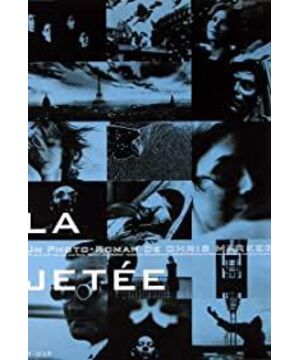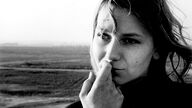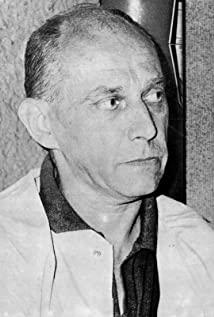I came across Chris Mark's work called Dyke in Jonathan Clary's 24/7: Late Capitalism and the End of Sleep, which says: "The story told happens. In the post-World War 3 future, where surviving humans live in crowded underground spaces, where the sky is dark and the cities on the ground are in ruins, those in power in the near future are desperate to carry out primitive time-travel experiments for Their embattled existence seeks redemption. One of the great dangers at the time was that most but a few people lost their ability to remember. The protagonist was chosen to participate in this experiment because of its obsession with obtaining an image of the past.
"Dike" is not a story about the future, but a reflection on the present. "And it is because of the modern people that I am experiencing at the moment and surrounded by technology, the ties that connect us are shattering, and the evil of rationality is prevailing in the name of the ideal life he bestows, but we in it are gradually lost. With the ability to imagine the future and look back on the residual memories of the past, what is a human being? Why should one live...?
I watched this short film twice, but I couldn’t understand it the first time. When I read the introduction to this short film written in this book, because I hadn’t seen it, I couldn’t feel what was described in it, but I could feel it. What comes is that Jonathan Clary also compares and echoes Hitchcock's "Psycho" with "Dike" because he has seen "Psycho".
In the first pass, the intuitive feeling I felt in the completely static picture was: Well, this is what a dream looks like, and the picture in our dream seems to be just a static picture that can only be played repeatedly. The phrase in the short film, "the only mark they have left, is the feeling of the moment", which is also the feeling that I can remember from the pictures in my dreams for many years in the past... The most impressive thing is in the dream. The dynamic picture of the woman who blinked two or three times when she woke up in a pile of static sleep pictures, so subtle details, were so cleverly placed in it. He is telling you that this pile of static images is not a splicing of photos, but is really an image of a dynamically flowing video image that has been deliberately stilled.
The dream of a man in childhood has always accompanied and supported him to the future. Of course, the ending is very cruel. In his childhood dream, he dreamed of his own death. Are dreams affecting us or protecting us? I still remember that Mr. Chen Chuanxing said in the thirteen invitations that our dreams are to protect us. After the experiment made him go back to the past and see his childhood dreams again, he doesn't want to go back to the future, he just wants to continue with the woman in the dream...
The second time is the same as the first time, the difference is that if there is no alienation and fragmentation caused by technology and capitalism, what is being felt and understood at the moment, what is happening between people, and caused by technology and capitalism, You can't really see what you think is the content of this short film, and I couldn't understand it when I watched this film a few years ago.
What the film "Dike" shows is the rejection of the present, the shackles of the present and the control of technology over people and society. Its core mission is to imagine or dream of another era. In the short film, the man in power said to the surviving man: "Humanity will eventually perish. Space is not enough. The only hope for survival lies in time. Through the loopholes in time, energy and food may be obtained. This is the purpose of the experiment."
"In the time available, go into the past of time in the hope of saving the future by calling upon the past, remaking or solidifying life into things or images, breaking the framework of historical time. In the framework of historical time, change is It can happen," wrote Jonathan Clary. If you can see the past, you can stop the changes that the past brings to today and the future. The short film was shot in 1962, after the Second World War...
View more about La Jetée reviews








